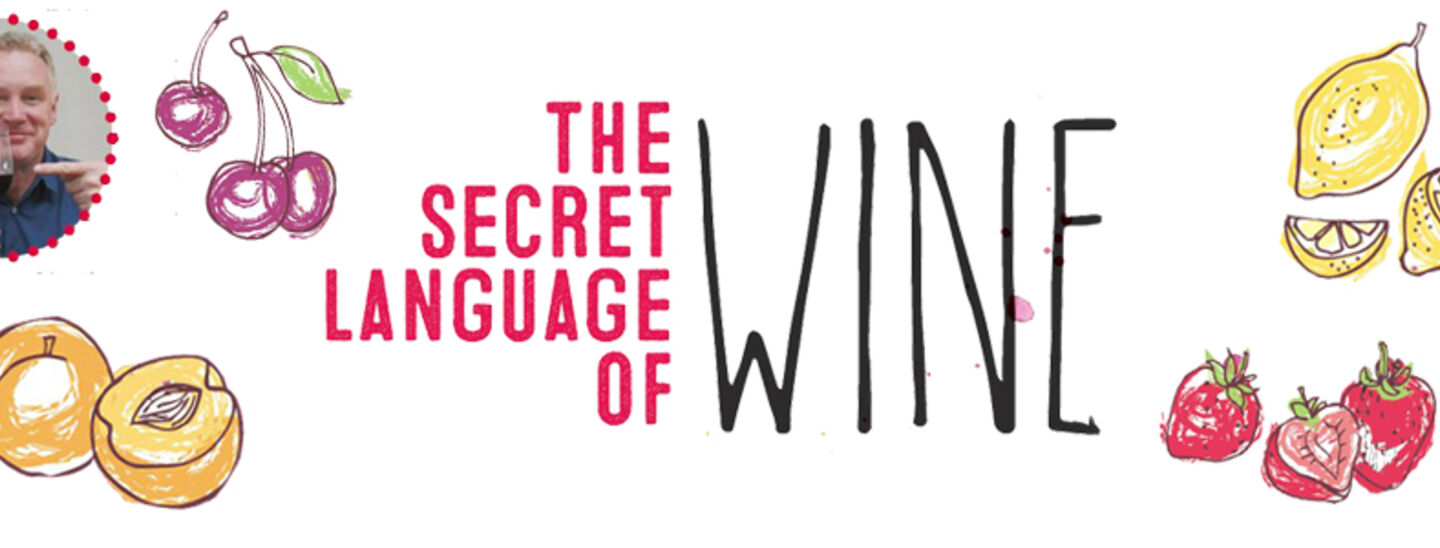The Secret Language of Wine
Can a wine taste of smoked bacon? Or lead pencils, mushrooms, dark chocolate and soy sauce? And if it did, would you really want to drink it? We wine writers make ourselves look very silly at times, trying to describe how a wine tastes. But did you ever wonder how wine gets all those delicious, complex flavours? Winemakers don’t actually add blackberries, cherries or ginger to a wine. These are the result of various factors, all of which determine how your glass of wine will taste.
The Climate
How much sun and rain a vine gets can have a big effect on the finished wine. Put simply, the more sun, the riper the grapes get and the more sugar they have. This doesn’t mean the wine will be sweet, though, as all the sugar ferments to alcohol. It does mean that the wine will be more full bodied and the fruit will taste sweeter. In poor vintages, if the grapes don’t ripen properly, a wine can taste green and herbaceous.
The Grape Variety
The variety of grape used is one of the most important factors in deciding how a wine tastes. Cabernet Sauvignon is said to have flavours of blackberries, blackcurrants or even cassis in wines from warmer climates. Cabernet also generally has more of those drying tannins, which is very good with food but difficult to drink without. Pinot Noir, on the other hand, is much paler in colour and lighter in tannins, with flavours of dark cherry. Every grape variety has its own unique set of flavours. To make it more complicated, many wines are made from a blend of several different varieties.
The Soil
Believe it or not, the kind of soil a vine grows in can make a big difference to the taste of a wine. You can’t actually taste slate, granite or limestone, but they can have a marked effect on how a wine turns out. The limestone soils of Chablis and Sancerre provide perfect drainage for vines while retaining moisture in dry weather, producing lively, crisp dry wines. Grapes grown in sandy soils tend to mean light and elegant wines, whereas clay soils produce big, rich, powerful wines.
Age
It catches up with us all, even wine! Wine begins ageing from the moment it’s made. Once bottled it will slowly react with dissolved oxygen and mature. Great wines can improve for decades, taking on all sorts of complex flavours, but the vast majority are made to be consumed young, particularly white wines.
The Winemaker
Winemakers aren’t gods (although some of them may think they are!), but the way they treat their grapes and wine in the winery has a huge impact on the bottle of wine you buy. It’s rarely talked about, but the strain of yeast used to ferment the grape juice can have a big effect on the flavour of a wine. A winemaker can add sugar to increase alcohol or acidity to freshen the wine. As well as ageing a wine in oak barrels, stirring the lees (or dead yeasts) adds a creamy or zesty texture. He or she can stop the fermentation to leave a little sweetness in the wine (or a lot for a sweet wine). Beyond this, today’s winemaker has a whole range of expensive tools to play with, from spinning cones to remove alcohol to evaporators to remove water. Most wines, whether from small producers or large, are made up of blends of many different wines. There can be dozens of options. It is often said that the greatest skill a winemaker can have is the ability to taste, and therefore blend, great wines for us to drink.
The Flavours of Wood
Many wines are fermented or aged in oak barrels. Old oak makes the wine smoother and softer, whereas new oak imparts various flavours to a wine. Depending on the kind of oak used, these include vanilla, smoke, spices, toasted nuts, caramel or coffee. Experts can sometimes tell where the oak comes from and how heavily it has been toasted.
New Wines
If all this sounds complicated, don’t worry. The trick is to learn what style of wine you like. Start off with your favourite grape variety and taste examples from a few countries or regions. A peek at the back label will often give you an idea of how the wine was made. Instead of buying the same bottle every week, why not try something slightly different? Experimenting can be a lot of fun and very rewarding.

